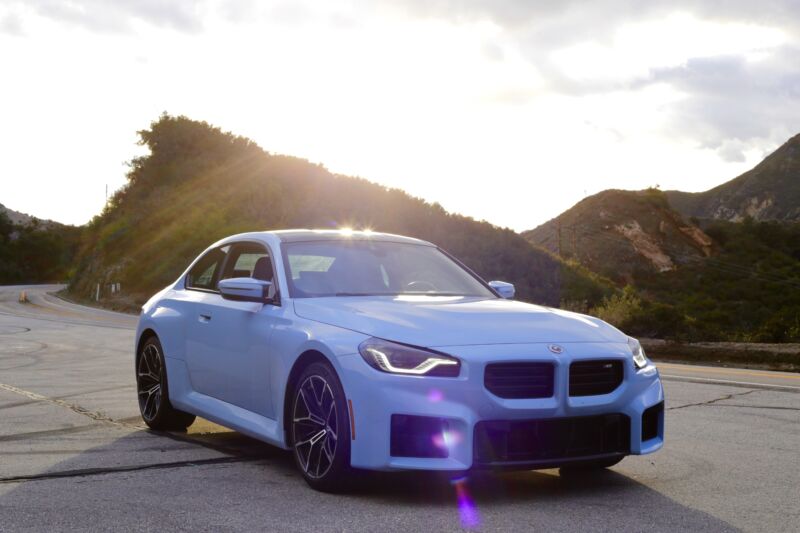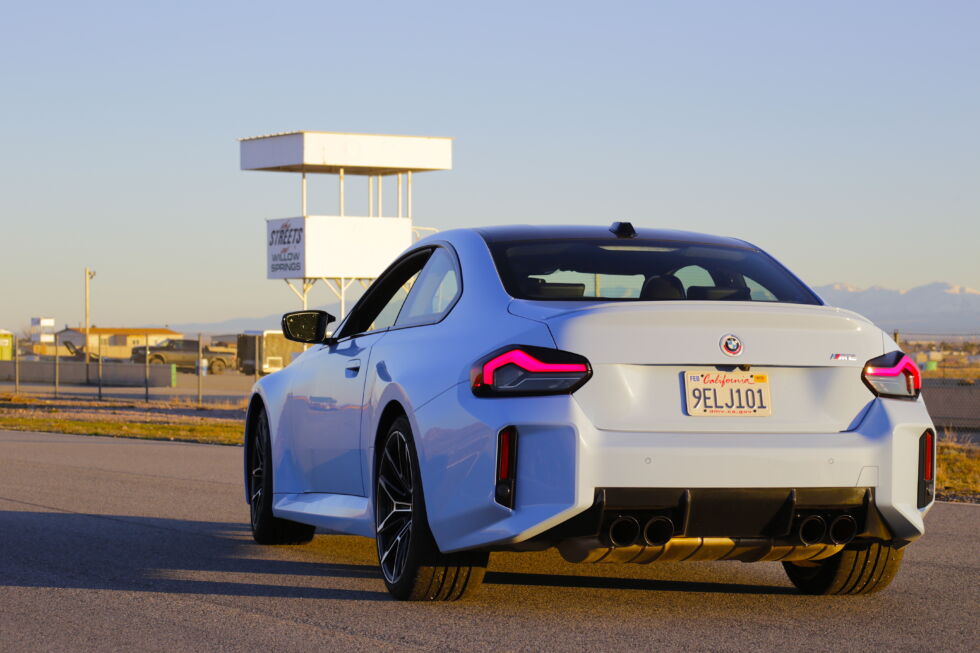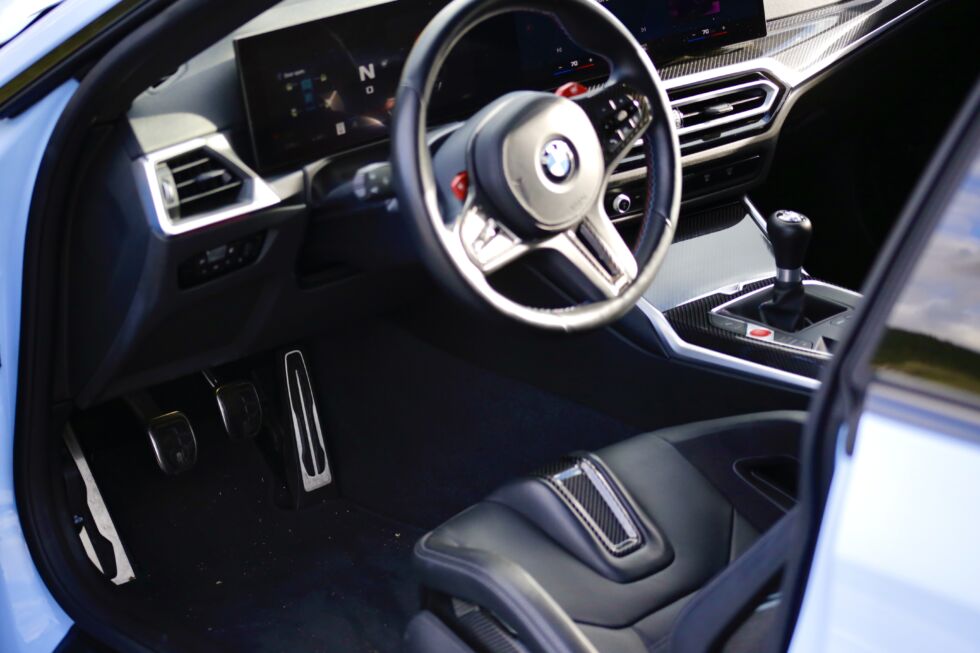
Peter Nelson
We’re at an interesting crossroads in the high-performance enthusiast car market. Running east to west is the adoption of electric vehicles and a slow reduction in internal combustion engine car production. North to south is the progression of ICE horsepower from the factory over the years, and it’s unclear how far it continues from here. Coming in diagonally is the weakening demand for manual transmissions—this is sadly where they end.
In the middle of this intersection is the 2024 BMW M2 six-speed manual, hanging its tail out in a massive controlled drift around the edges, expressing one last hurrah as BMW’s final object of internal-combustion M car affection.
I recently had the opportunity to pilot BMW’s latest, smallest M car through some of Southern California’s most fun mountain roads, plus Willow Springs International Raceway’s Streets of Willow circuit. When it comes to quickly figuring out this kind of car’s powertrain and chassis, I can’t think of a better mix of pavement. Here’s what makes the latest—and last—six-speed-manual-equipped M2 generation an overall excellent enthusiast coupe.

Peter Nelson
Focused inside-out
Looks are subjective, particularly BMW looks, but I think BMW did a good job on the M2’s exterior. Its kidney grilles, headlights, fender flares, exhaust tips, and wide fenders—especially in the rear quarter panels—are attractive. It’s a muscular little coupe, and it definitely informs you of its intentions with its massive intakes cut into its front end. Behind them lies a heat exchanger for its engine’s air-to-water intercooling (more on that in a bit), plus several other forms of water and oil cooling to ensure long-lasting peak performance, all-twisty-road-and-track-session-long. It’s hard to mistake it for a base 2 Series.
Inside, it’s quite spacious for a coupe and has great visibility all around. My test car included the $9,900 Carbon Package, which gets you comfortable, near-race-bucket carbon fiber seats and a slick carbon roof. I’m 6 feet and 3 inches tall, so the absence of sliding glass up top was a godsend and even allowed me to wear a helmet on track without needing to recline, a rarity in modern cars. The seats are a bit of a pain to slide in and out of, and the left leg bolster pushed inward slightly too much, impeding efficient and comfortable clutch action for my lanky figure. I suspect many folks wouldn’t have the same issue, though.
Technology-wise, a crisp 12.3-inch digital instrument cluster and a 14.9-inch touchscreen take up a lot of real estate. BMW’s iDrive 8 software is easy to get the hang of, operates quite seamlessly, and has good haptic feedback. Materials quality is overall quite good; all buttons and dials felt substantial, and the Carbon Package includes chic slabs of carbon fiber trim instead of the boring old piano black plastic that’s all too common in modern performance cars.

Peter Nelson




















+ There are no comments
Add yours